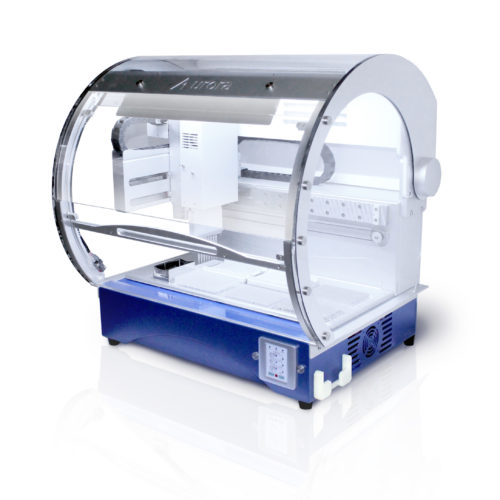Tumor markers found in blood, urine and body tissues can be used in diagnosing and treating cancer. Each tumor marker is indicative of a particular disease and thus can be used for the screening, monitoring and diagnosis of specific tumor types. In addition to being used in prognosis, these molecular markers help to predict the response, resistance and toxicity to therapy. For example, BCR-ABL gene sequence detection is used to diagnose chronic myelogenous leukemia and acute lymphatic leukemia.
Research has increasingly focused on DNA-based PCR techniques for the detection of such markers, emphasizing advancements that make PCR processes faster and more efficient, particularly through automation.

and sequencing reaction setup is essential to screen the large number of samples. The demand for the automation of molecular pathology applications is high due to the increased speed and accuracy achieved through robotics.
The VERSA 10 Workstation is currently used by labs worldwide in the automation of molecular pathology applications. By completing PCR and sequencing setup protocols, the VERSA 10 can help to determine and monitor expressions and to as well as search for genetic variants which may be involved in breast cancer metastasis. Such indicators will ultimately lead to the development and use of a biomarker-based diagnostic test to determine a patient’s breast cancer metastasis risk.


